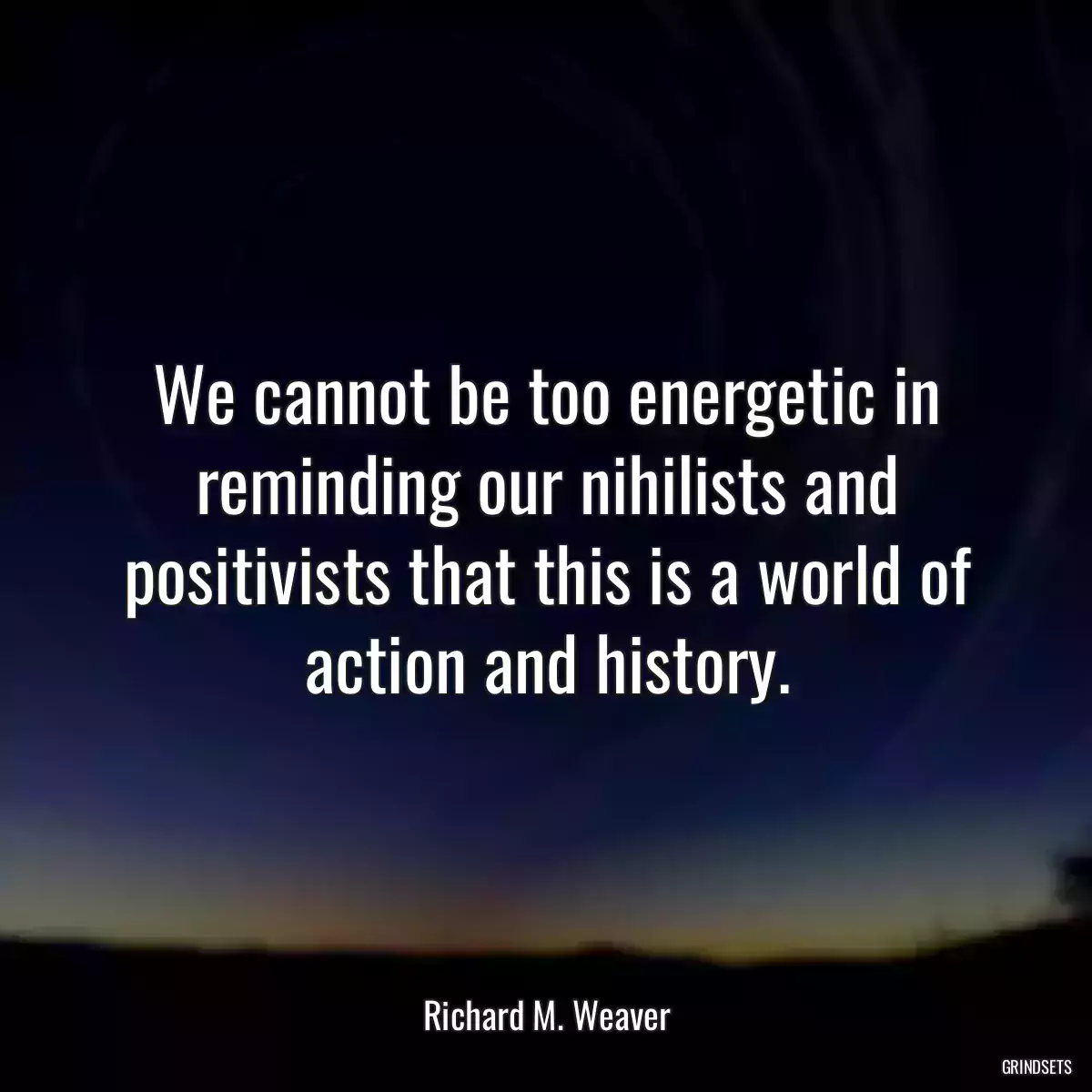
We cannot be too energetic in ...

More phrases
Effort only fully releases its reward after a person refuses to quit.
Never complain and never explain.
A good plan violently executed now is better than a perfect plan executed next week.
George S. Patton
Problems are not stop signs, they are guidelines.
Robert Schuller
Never give up, for that is just the place and time that the tide will turn.
Harriet Beecher Stowe
Quotes from the same author
It has been remarked that when one passes among the patients of the psychiatric ward, he encounters among the several sufferers every aspect of normal personality in morbid exaggeration. ... As one passes through the modern centers of enterprise and of higher learning, he is met with similar autonomies of development. ... The scientist, the technician, the scholar, who have left the One for the Many are puffed up with vanity over their ability to describe precisely some minute portion of the world. Men so obsessed with fragments can no more be reasoned with than other psychotics.
Richard M. Weaver
Absorption in ease is one of the most reliable signs of present or impending decay.
Richard M. Weaver
The word is a sort of deliverance from the shifting world of appearances. The central teaching of the New Testament is that those who accept the word acquire wisdom and at the same time some identification with the eternal.
Richard M. Weaver
It is characteristic of the barbarian ... to insist upon seeing a thing "as it is." The desire testifies that he has nothing in himself with which to spiritualize it; the relation is one of thing to thing without the intercession of the imagination. Impatient of the veiling with which the man of higher type gives the world imaginative meaning, the barbarian and the Philistine, who is the barbarian living amid culture, demands the access of immediacy. Where the former wishes representation, the latter insists upon starkness of materiality, suspecting rightly that forms will mean restraint.
Richard M. Weaver
Many of us who read the literature of social science as laymen are conscious of being admitted at a door which bears the watchword "scientific objectivity" and of emerging at another door which looks out upon a variety of projects for changing, renovating, or revolutionizing society. In consequence, we feel the need of a more explicit account of how the student of society passes from facts to values or statements of policy.
Richard M. Weaver